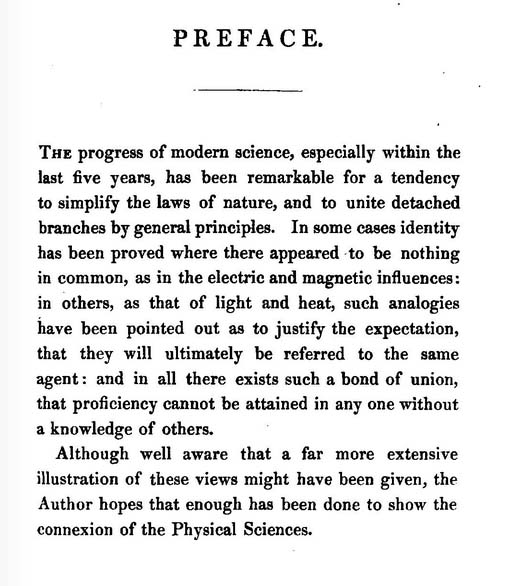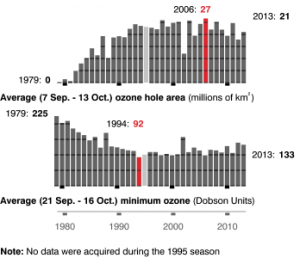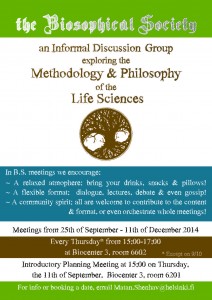In the interview Jorge has several insights about his career path and also advice for early stage researchers. I have been Jorge’s friend and collaborator for more than 30 years, and been a witness of how he has followed since he was an undergraduate the path he now gives as advice in the interview. The result has been a successful career doing very original research.
Category Archives: Science news
You thought peer-review system works and is reliable? Think again…
Lovelacen kreivitär kirjoitti tietokoneohjelman, ja häntä opasti Mary Somerville (Hessari 7.11.2014)
Today there was an interesting article in Helsingin Sannomat.
http://www.hs.fi/ulkomaat/a1415168967244
The book by Mary Somerville, that is mentioned in the article is in the public domain and available, as many other old and interesting books, through the Internet Archive.
https://archive.org/details/onconnexionphys00somegoog
I was particularly impressed by the preface written in the 1830’s:
 In one of the comments in HS a reader writes that programming is boring… I disagree, just coding may be boring, but designing software and algorithms is anything but boring!
In one of the comments in HS a reader writes that programming is boring… I disagree, just coding may be boring, but designing software and algorithms is anything but boring!
Another reader correctly says that Ada is not a super-computer langauge. In a way it was ment to be when it was designed, but in the sense of being a tool for creating reliable and bug-free software. However, as some other languages designed by a commitee it ended being too complex and inconsistent, and because of this difficult to use as a general purpose language.
CFCs, the ozone layer and global change

Figure from NASA’s Ozone Hole Watch showing changes in the ozone hole since 1979 until last year.
I guess most people reading this blog already know about the role of CFCs in the thinning of the ozone layer and its extreme manifestation the “ozone hole”. (If not you will find explanations here and here and ozone depletion maps here, and information on the Montreal protocol here and here.)
An article by Prof. Nigel Paul published in the The Conversation highlights the success of the protocol.
However, what fewer people know is that CFCs are potent “greenhouse gases”, and a recent article discusses why of all measures taken up to day, what has most significantly contributed to slowing-down global warming is the Montreal protocol. In my view, to a large extent this just shows how little progress has been achieved in reducing emissions of other “greenhouse gases” like carbon dioxide. A recent article in The Economist highlights this.
Biosophical society
I guess most of you have seen this poster tacked on the elevators walls and on the front door of Biocenter 3. If you are a student, or a researcher and you aim at understanding science, then the events organized by the society will surely broaden your view. At least from time to time, we all need to stop, and spend some time pondering the deeper questions about Biology. This helps in many ways: 1) it will make us think about things and assumptions we normally take for granted, 2) it will allow us to put our own research in a much broader context, which could reveal either unsuspected implications or logical flaws, 3) hopefully they will lift to some extent our blindness to the “logic” behind research in other disciplines, allowing us to see new patterns and connections. The current group of participants comes from several different disciplines and have different research backgrounds which should make the discussions particularly interesting for everybody.
poster tacked on the elevators walls and on the front door of Biocenter 3. If you are a student, or a researcher and you aim at understanding science, then the events organized by the society will surely broaden your view. At least from time to time, we all need to stop, and spend some time pondering the deeper questions about Biology. This helps in many ways: 1) it will make us think about things and assumptions we normally take for granted, 2) it will allow us to put our own research in a much broader context, which could reveal either unsuspected implications or logical flaws, 3) hopefully they will lift to some extent our blindness to the “logic” behind research in other disciplines, allowing us to see new patterns and connections. The current group of participants comes from several different disciplines and have different research backgrounds which should make the discussions particularly interesting for everybody.
I will myself participate, and chair one session some time in November.
For the programme and additional infrmation see the society’s own web site.
For info or booking a date, email Matan.Shenhav@helsinki.fi